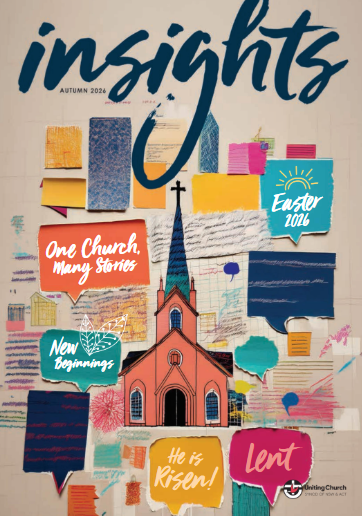The 25th March is the UN International Day of Remembrance for the Victims of Slavery and the Transatlantic Slave Trade. Heartbreakingly for 45.8 million people around the world slavery is still their reality, this includes 4,300 people living right here in Australia (Global Index 2016).
Child marriages, forced labour, sex trade and domestic servitude are just the few painted pictures of modern day slavery.
In 2011 the Uniting Church in Australia with Stop the Traffik and Oaktree, through an extensive report, urged the Australian Government to create standards for industries to ensure that human trafficking or slavery is not present in the production of imported goods.
Last month, in response to the United Kingdom’s Modern Slavery Act 2015, the Australian Government launched an inquiry into whether Australia should adopt a similar national legislation.
Individuals and organisations are able to make submissions/proposals to the government to help push for a modern day slavery act to be adopted. Stop the Traffik is providing video conferences as a resource for anyone who is looking to submit. The next video conference is on the 30th March with the Director of Anti-Slavery Australia, Professor Jennifer Burn.
Walk Free Foundation founder and Australian businessman Andrew Forrest, spoke to the Guardian about the importance of businesses to address whether their production is tainted by slavery and for the public to ask questions.
“We need to make it unacceptable for people to buy something without asking the company where it was made and who made and who made it. If they can’t answer that question clearly then the next question clearly then the next question must be ‘how do you know it wasn’t made with slave labour?” said Mr Forrest.
What you can do now
Easter is fast approaching which means, Easter eggs and just chocolate in general, are likely to be on top of the shopping list.
What you may not know is that 70% of the world’s cocoa, which is then made into chocolate, is harvested in West Africa, a hot-spot for child labour. Communities are encouraged to look out for the Fairtrade, UTZ or Rainforest Alliance certification on chocolate packaging to ensure that no slavery was used in its production.
You can find where to buy your ‘traffik-free’ Easter chocolate through the Good Egg Guide. You can also organise a traffik free Easter egg hunt to help raise awareness for the children trapped in slavery.
Further readings
Learn more about modern day slavery in Australia.
Servant or Slave? You know about the Stolen Generation but have you heard about the Stolen Wages? Read more here.
Resources
Find out how to make a submission to the Australian government here.
Melissa Stewart






